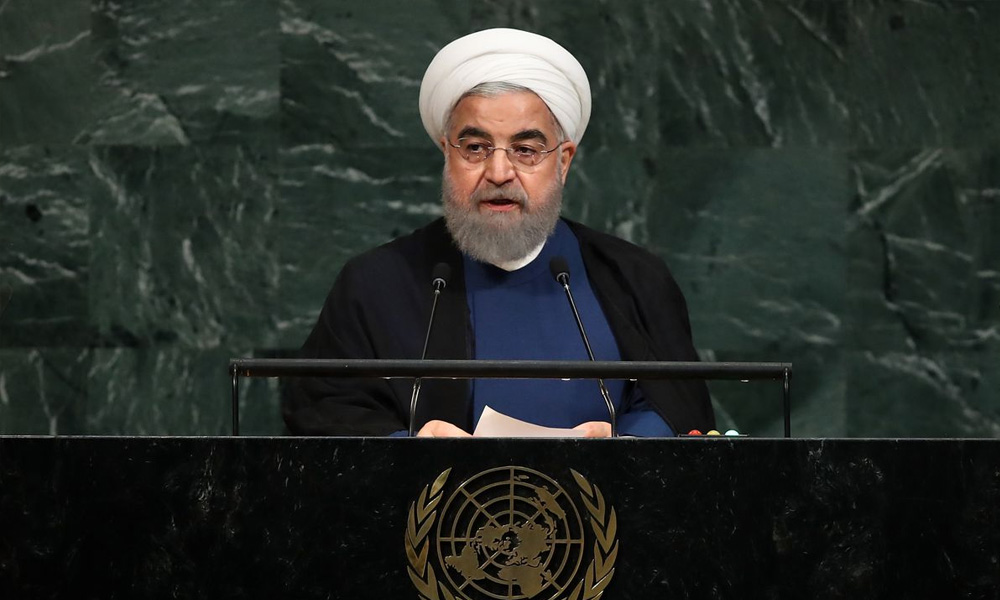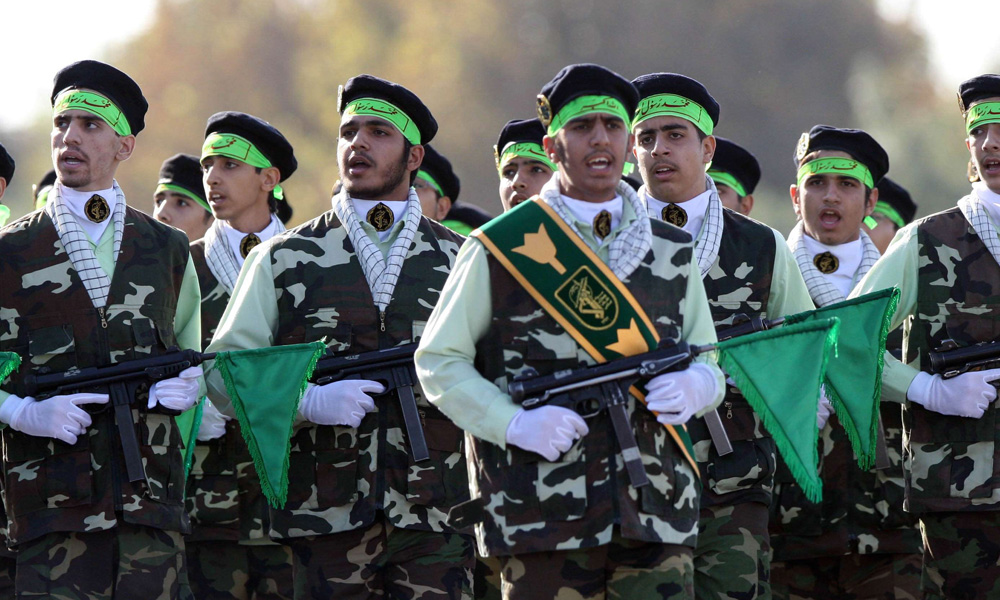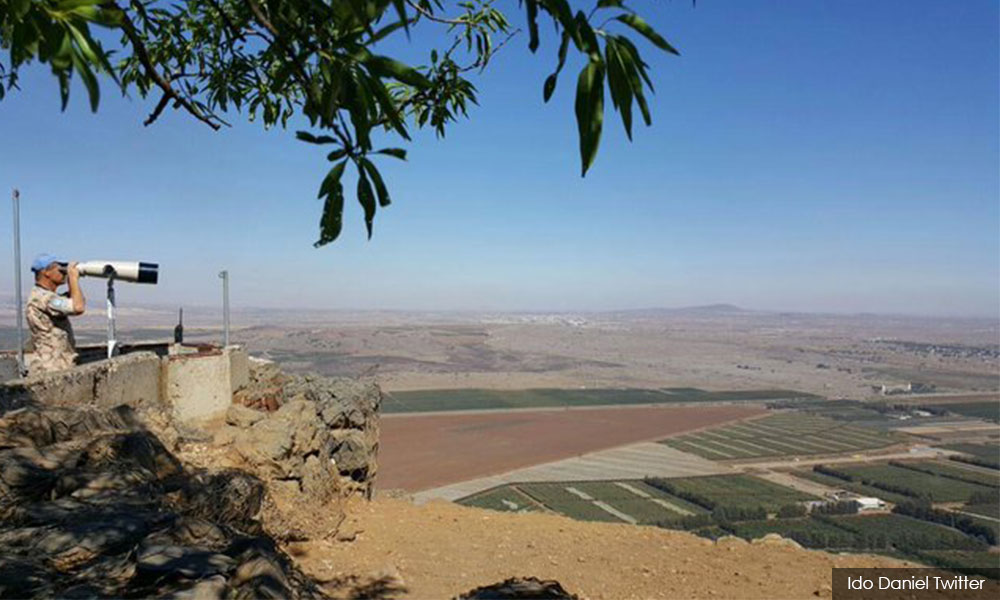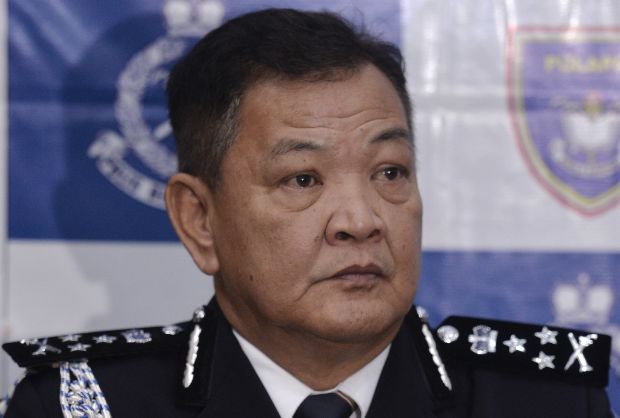
Published by Malaysiakini, images from Malaysiakini.
The geopolitical rivalry between Iran and its neighbours headed by Saudi Arabia, instigated by Israel and ferociously supported by the US, is now reaching another peak.
This issue is not of equal concern to all parts of Asia. However, the conflict that has been simmering for about four decades is, in fact, a showcase of the new world order in the making, and that is why it concerns everyone, including Malaysia.
On May 8, 2019, Iranian President Hassan Rouhani (photo, above) stated that Iran takes a first step in retracting from the Joint Comprehensive Plan of Action (JCPOA) – involving the five permanent members of the UN Security Council (UNSC) plus Germany – that was called to clear off suspicions about the purpose of its nuclear programme.
Rouhani’s statement marked the one-year anniversary of the US withdrawal from the deal, as Iran finally decided to make a point – the country is not benefiting from the agreement. The Europeans, however politically supportive they were, failed to find an effective way to bypass the US unilateral sanctions.
We have already been at a similar point of escalation before, for example, in 2012, when the US and EU imposed “crippling” sanctions on Iran that severely affected its oil-based economy. Iran threatened to block the Strait of Hormuz for the passage of all the oil exported from the Gulf, tempers were running high and analysts weighing on the possibility of war.
However, back then President Donald Trump was not in the White House yet, neither was his hawkish, anti-Iran security adviser John Bolton, and the perspective of diplomatic settlement as a concluding chord of Barrack Obama’s legacy was still lying ahead.
Now, Iran is cornered more than ever before with soaring chances for escalation into a military flare-up. Proper communication between Iran and the US is absent, nerves in Teheran are highly strung, with the government facing not only psychological bullying in the Gulf, but also the prospect of civil unrest at home. Inflation soared to 50 percent, some basic goods are absent from the shelves, and the public is being warned to close ranks against foreign incitement of counter-revolution.

The problem is that the list of what Washington is demanding from Teheran keeps expanding. The most recent slap Iran received in April 2019, when its Islamic Revolutionary Guard Corps (IRGC), the organisation that performs, among others, a function of military forces, was designated by the US as a terrorist organisation.
On May 4, 2019, the US announced that waivers for the countries purchasing oil from Iran will not be extended. Shortly after, the American aircraft carrier Abraham Lincoln that played a prominent role in the Iraq invasion of 2003, was sent to the Persian Gulf along with B-52 bombers.
Not many would like to acknowledge that JCPOA was a cosmetic measure to conceal this old geopolitical rivalry that began when Iran revolutionised itself into the Islamic Republic in 1979. Despite that fact, in 2015, many felt benefiting from it in one or another way – it could be called a legacy, declared an achievement of diplomacy, a tremendous effort undertaken to prevent the erosion of the international non-proliferation regime, for Iranians – brought hope for economic betterment.
The important thing is that those expectations to benefit from JCPOA were legally sealed – the text was endorsed by the UNSC Resolution 2231 on July 20, 2015, and its provisions resolution deemed to be mandatory for execution according to the UN Charter.
Iran abided by the requirements of the plan, including the limits to uranium enrichment, reduction of the enriched uranium stockpile, reconstruction of its heavy water facility in Arak and other commitments. Its compliance was confirmed in many reports by the International Atomic Energy Agency (IAEA), the last of which was issued in February 2019.
However, Trump preferred to remain a stranger to that embellished world that well-trained lawyers usually live in. Indeed, since his time in office, he has already withdrawn from Unesco, Nafta, TPPA, INF Treaty and JCPOA.
A shallow approach has been taken in other international matters that involved legal norms and mandatory decisions. Trump preferred to turn a blind eye to the conclusions presented by the CIA which implicated the Saudi Crown Prince Mohammad bin Salman in the murder of journalist Jamal Khashoggi in October 2018. After all, Saudi Arabia remains a key strategic ally and American arms recipient in the Middle East.
In December 2016, Trump, against UNSC Resolution 478 of Aug 20, 1980, announced the US recognition of Jerusalem as the capital of Israel. In March 2019, against the UNSC Resolution 497 of Dec 17, 1981, he recognised the Israeli-occupied Golan Heights (photo, below) as a part of Israel.

The strangely leaked information on the American plan to settle the Israeli-Palestinian conflict, which its head architect Jared Kushner is supposed to release in early June, also seems to be far from what the international community established on the rights of Palestinians to the land.
Meanwhile, the US-Iran standoff has been there for more than 40 years, more than 15 of them under the excuse of Teheran’s nuclear ambitions. Now, apparently, the US decided to play the Iranian card again, and it fits well into their latest chain of policies that were outrageously against international norms. When such decisions start looking like a pattern and provoke a very unpredictable military flare-up, it is probably the time for everyone to watch closely.
By no means is this is a call for smaller nations to get involved in the stalemate between a superpower and a regional power at their own expense. At the same time, Iran might not remain an international ‘pariah’ forever. Political priorities or regimes change, after all, and international structures keep evolving.
With the passionate non-aligned nations of the past now having lost their fervour and sitting quietly at the back bench, what is to stop the creation of a world where the new normal is to act unilaterally and unrestrictedly upon one’s political considerations?
Remember that proverbial confession by the German pastor Martin Niemöller, “First they came…” about the cowardice of intellectuals and clergy in Nazi Germany? It might as well be applied to the indifference of nations that did nothing to maintain the norm. In this case, first, they came for Iran…
Resources and military might are limited for many of those who are now quietly observing the US-Iran escalation. Diplomacy, however, might have an untapped potential here, and this does not require a size or weight of Russia to start diplomatically adjusting the current course of the global ship.
It is time to look carefully at the possibility of yet another war in Asia. Middle and small powers do not need to deal with international bullying in a solo manner; there must instead be a concerted effort based on a particular reason.
This is not about standing with Iran because it is a neighbour, or a Muslim nation, or anything of the sort; but about upholding of principles of law and order, which humans created to organise their living in a civilised way.
Julia Roknifard is Director of Foreign Policy at EMIR Research, an independent think-tank focused on strategic policy recommendations based upon rigorous research.

